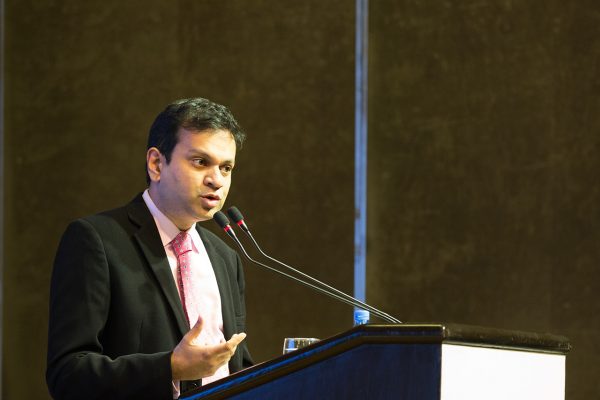Is Bangladesh’s RMG industry on its way to recovery?
Reading Time: 3 minutes
Mapped in Bangladesh (MiB) is the first ever research-based initiative in Bangladesh for export-oriented readymade garment (RMG) industry. It endeavours to bring transparency in the sector through accurate, up-to-date data.
Mapped in Bangladesh, a four-year (2017-2021) project by the Centre for Entrepreneurship Development of BRAC University, is driven by the fundamental belief that transparency and traceability lead to long-term industry advancements and improved working conditions.
It recently published findings from the second phase of its ongoing rapid survey series. The findings were revealed at a webinar titled State of the RMG Industry during the Pandemic: Is it on the way to recovery? on 20 July 2020, bringing together speakers from Pennsylvania State University, Center for Policy Dialogue and BRAC University. Data is collected through a country-wide census. To date, the beta version of the digital map has published data of 2,837 factories in Dhaka, Gazipur, and Narayanganj districts. Data of another 505 factories from Chattogram district will soon be published on the map.
For Phase 2 of the rapid survey, data was collected over phone calls. A total of 3,342 factories from Dhaka, Gazipur, Narayanganj, and Chattogram districts were contacted, of which 2,334 factories took part in the survey. MiB reports that among the factories that participated in the survey, 1,850 (79%) factories are currently operating, 286 (12%) factories are temporarily closed, and 198 (9%) factories have shut down permanently.

Among the operational and temporarily closed factories (total 2,136 factories), 40.54% of the factories were hopeful to resume operations fully after June 2020, while 25.14% said that they hoped to resume their operations partially, and 30.57% factories were uncertain whether they would be able to resume their operation after June 2020. On an average, the member factories (factories that are members of BGMEA and/or BKMEA) were able to utilise 70.55% of their production capacity, compared to 59.83% by non-member factories.
Factories that are currently operational have been using 92.1% of their workforce during the pandemic compared to the pre-pandemic time. This rate of workforce utilisation at present compared to the time before the pandemic was higher for Dhaka district (96.9%), while the lowest was for factories from Gazipur district (89%).

A key finding from the survey shows 143 factories are producing face masks and/or personal protective equipment (PPE) along with their regular line of products, of which 69 factories said that they are producing for the export market.

It was also seen that factories that are members of trade associations reported having workers participation committee (WPC) and safety committee, and took higher number of measures in the factory to prevent the spread of Covid-19 than factories who were not members.
Will the crisis bring new and unexpected potential for the RMG industry?
Besides concerns about people’s wellbeing, fears of a looming economic recession prevail. The full socioeconomic impact of the Covid-19 pandemic is still difficult to predict. Digital technology has a key role to play during this phase of reorientation. Digital initiatives like MiB can contribute to the RMG sector by promoting updated factory data for evidence-based decision making for major stakeholders.
The project also launched a separate map based on findings from Phase 2 of the rapid survey. The map based on the rapid survey shows which factories are producing face mask/PPE/regular products along with the status of their workforce. The next phase of the rapid survey is scheduled to be conducted in August.
The MiB project is being funded by Laudes Foundation, with co-funding by the Kingdom of the Netherlands, with strategic partnership with BGMEA, Bangladesh Knitwear Manufacturers and Exporters Association (BKMEA), and strategic support from Department of Inspection for Factories and Establishments (DIFE).
Fahim S Chowdhury is senior research associate, Md Faizul Islam is research, M&E associate and Sadril Shajahan is research associate at Center for Entrepreneurship Development (CED), Brac University.
Cover Photo:©BRAC





